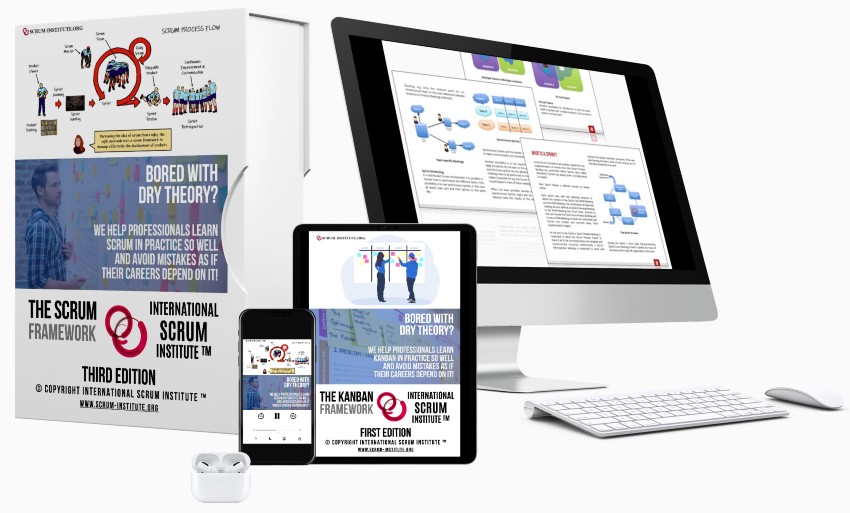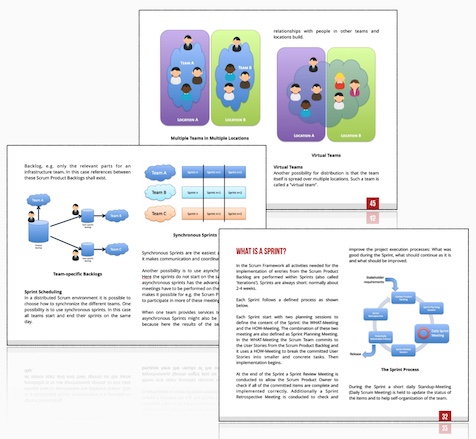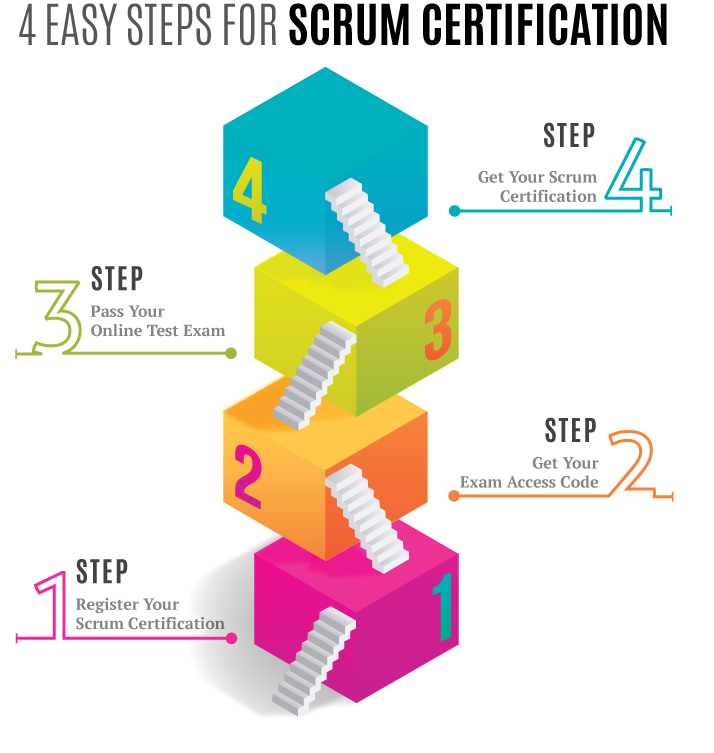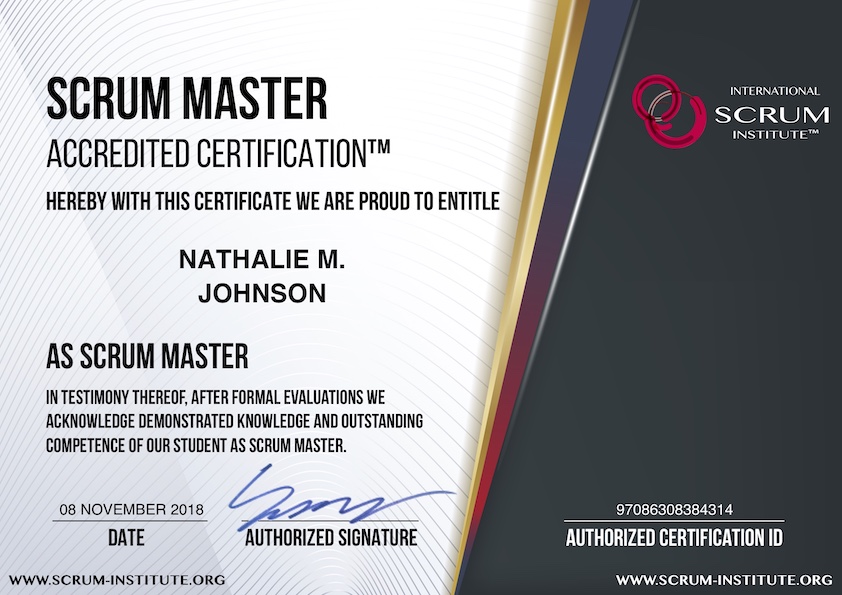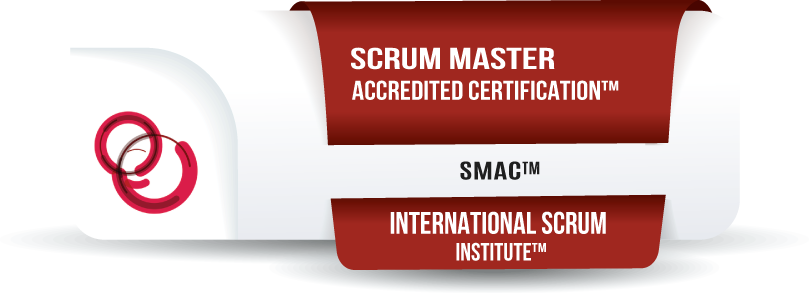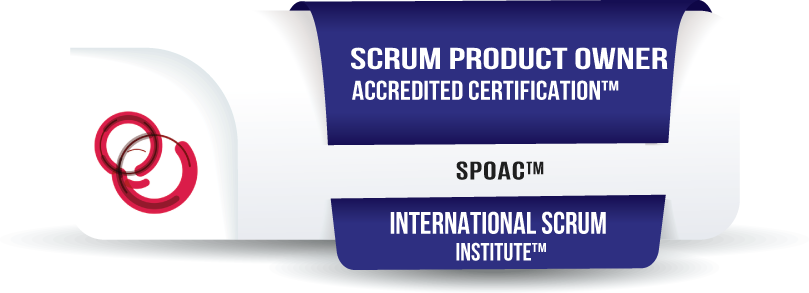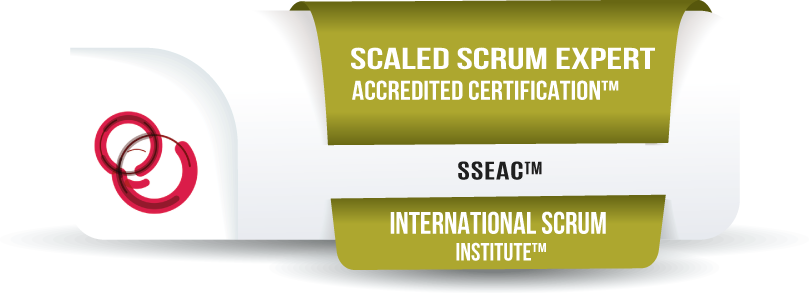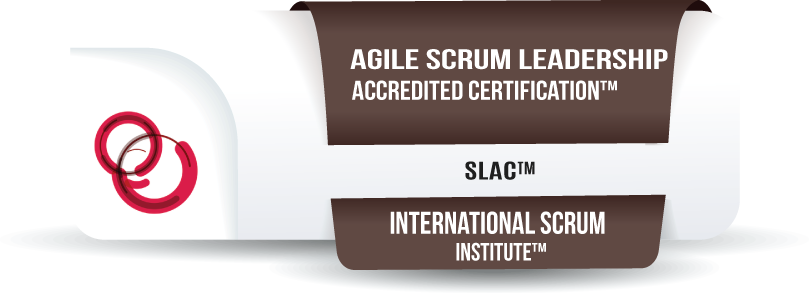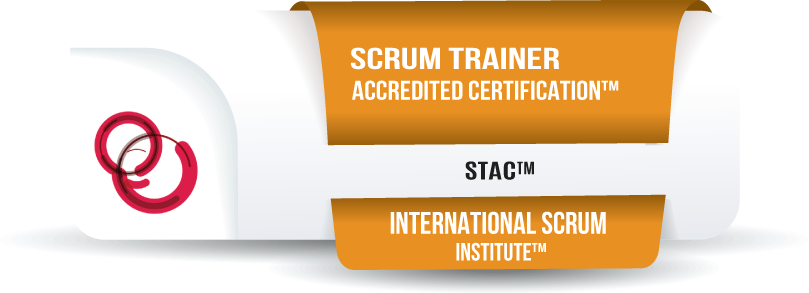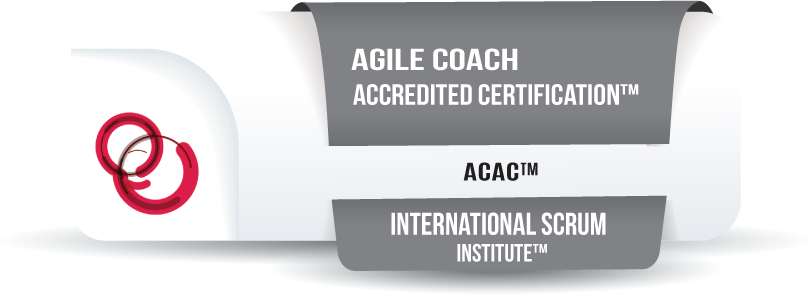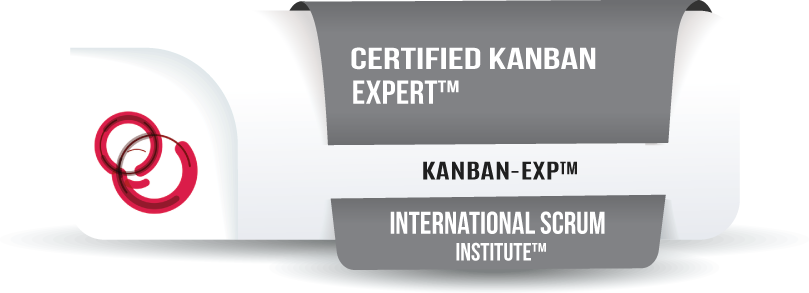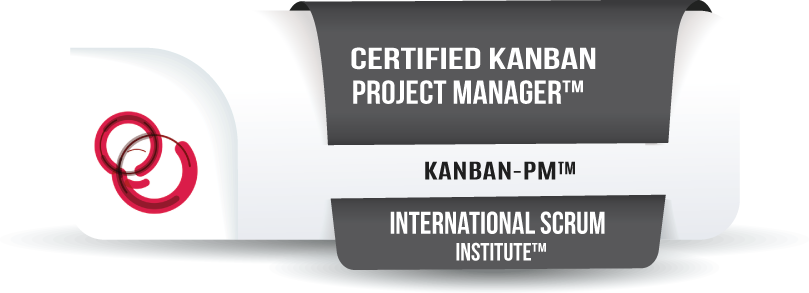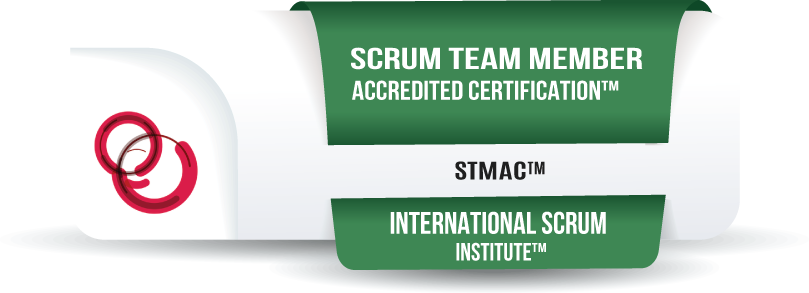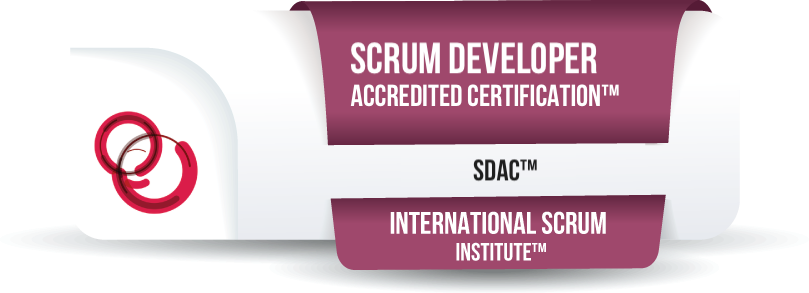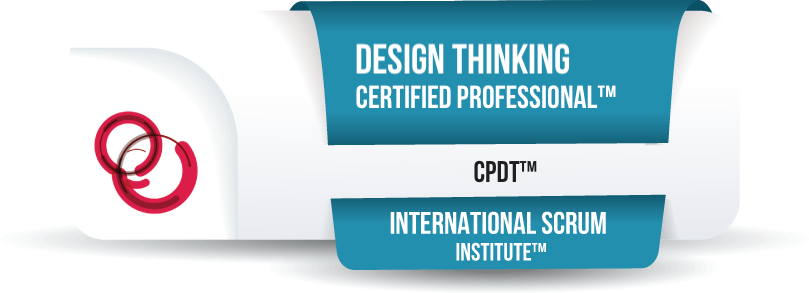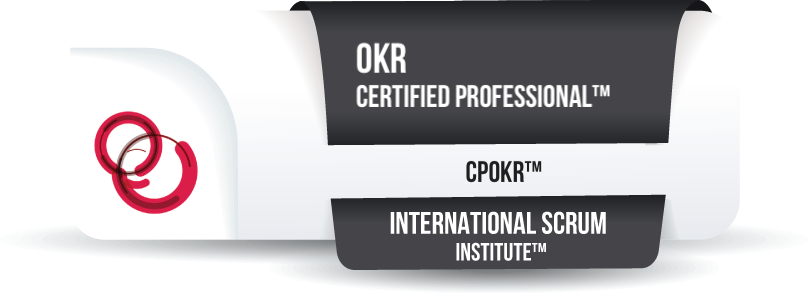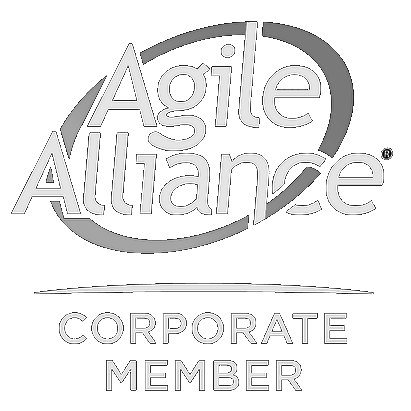Scrum Master Interview Questions
60 Real Scrum Master Interview Questions & Answers
In a Scrum Master interview, you will face questions that test your grasp of Scrum principles and practices, along with your problem-solving skills. They will challenge your experiences in resolving conflicts and ability to cooperate well with diverse teammates. An excellent way to prepare is to adjust your answers to highlight your strengths in the Agile scheme. You must show adaptability, superb communication skills, and firm commitment to continuous growth. A surprise might be technical queries related to Agile methods and the Scrum framework. Don't fret; just share your understanding of these concepts and perhaps recollect times when you used them successfully in prior roles or projects. Gear up for your close-up.
During a Scrum Master interview, you may be asked about your experience resolving team conflicts, facilitating productive Scrum meetings, maximizing team efficiency/productivity and ensuring adherence to Scrum values and practices. Other potential questions could relate to your approach in handling challenging scenarios within a Scrum framework. Remember to tailor your responses to showcase how your specific skills align with the company's needs.
60 Real Scrum Master Interview Questions & Answers
- Scrum Master Interview Question #1:
Can you explain the role of a Scrum Master and how it differs from other project management roles?
Questioned Scrum Master Skill (Goal of the Interview Question): This question aims to evaluate the candidate's understanding of the unique responsibilities of a Scrum Master.
As a successful Scrum Master how you're recommended to answer this question: The Scrum Master plays a crucial role in facilitating the Scrum framework, acting as a servant-leader to the team. Unlike traditional project managers, the Scrum Master doesn't have direct authority over the team but focuses on removing impediments, fostering collaboration, and ensuring adherence to Scrum principles. In essence, the Scrum Master is a facilitator who empowers the team to self-organize and achieve their objectives.
- Scrum Master Interview Question #2:
How do you handle conflicts within the Scrum team?
Questioned Scrum Master Skill (Goal of the Interview Question): This question aims to assess the candidate's conflict resolution skills.
As a successful Scrum Master how you're recommended to answer this question: Resolving conflicts within the Scrum team is vital for maintaining a healthy working environment. I approach conflicts by first facilitating an open dialogue among team members to understand perspectives. Then, I identify the root cause of the conflict and work collaboratively to find a mutually agreeable solution. It's crucial to foster a culture of transparency and continuous improvement, encouraging team members to express concerns and collaborate on finding resolutions.
- Scrum Master Interview Question #3:
What strategies do you employ to ensure effective communication within the Scrum team?
Questioned Scrum Master Skill (Goal of the Interview Question): This question aims to gauge the candidate's communication and collaboration skills.
As a successful Scrum Master how you're recommended to answer this question: Effective communication is foundational to Scrum success. I ensure communication clarity by organizing regular ceremonies like Daily Standups, Sprint Planning, and Retrospectives. Additionally, I facilitate constant communication through tools like Slack or Microsoft Teams and encourage face-to-face interactions when possible. By fostering an environment where information flows freely and transparently, the team can collaborate seamlessly towards achieving their sprint goals.
- Scrum Master Interview Question #4:
How do you handle a situation where the development team wants to change the Definition of Done mid-sprint?
Questioned Scrum Master Skill (Goal of the Interview Question): This question evaluates the candidate's ability to manage scope changes and uphold Scrum principles.
As a successful Scrum Master how you're recommended to answer this question: When faced with a request to change the Definition of Done mid-sprint, I would first engage in a discussion with the team to understand the reasons behind the proposed change. While flexibility is encouraged in Scrum, it's essential to balance it with maintaining the integrity of the sprint goal. If the change aligns with the sprint objective and doesn't compromise quality, we can consider adjusting the Definition of Done. However, if the change poses a risk to the sprint goal or introduces unnecessary complexity, I would guide the team towards discussing the potential impact and making an informed decision.
- Scrum Master Interview Question #5:
How do you measure the success of a Scrum team?
Questioned Scrum Master Skill (Goal of the Interview Question): This question aims to assess the candidate's understanding of key performance indicators in Scrum.
As a successful Scrum Master how you're recommended to answer this question: Evaluating the success of a Scrum team involves assessing both quantitative and qualitative metrics. Quantitatively, I look at velocity, burndown charts, and sprint progress to ensure the team is consistently delivering value. Qualitatively, I assess team satisfaction, collaboration, and their ability to adapt to change. By combining these metrics, I gain a holistic view of the team's performance and identify areas for continuous improvement. It's essential to strike a balance between quantitative and qualitative measures to foster a high-performing and satisfied team.
- Scrum Master Interview Question #6:
How do you handle a situation where the Product Owner is not actively engaged or available?
Questioned Scrum Master Skill (Goal of the Interview Question): This question evaluates the candidate's ability to navigate challenges related to stakeholder engagement.
As a successful Scrum Master how you're recommended to answer this question: When faced with an unengaged or unavailable Product Owner, I take proactive measures to address the issue. First, I communicate with the Product Owner to understand the reasons behind their lack of involvement. If it's due to competing priorities, I work collaboratively to find a balance that allows for their active participation. In the absence of direct engagement, I take on the responsibility of representing the Product Owner's perspective to the team and facilitating decisions based on the available information. My goal is to maintain alignment with the product vision and ensure the team can deliver value even in challenging circumstances.
- Scrum Master Interview Question #7:
How do you handle scope changes or feature additions during a sprint?
Questioned Scrum Master Skill (Goal of the Interview Question): This question assesses the candidate's ability to manage scope changes and prioritize effectively.
As a successful Scrum Master how you're recommended to answer this question: When faced with scope changes or feature additions during a sprint, I follow a structured approach to minimize disruption. I evaluate the impact on the sprint goal and team capacity, considering whether the change is critical for achieving the overall project objectives. If the change aligns with the sprint goal and doesn't compromise delivery, we may adjust priorities collaboratively. However, if the change poses a significant risk to the sprint goal, I guide the team to capture the request in the product backlog for consideration in future sprints. It's crucial to balance flexibility with the commitment to delivering a cohesive increment at the end of each sprint.
- Scrum Master Interview Question #8:
How do you promote a culture of continuous improvement within the Scrum team?
Questioned Scrum Master Skill (Goal of the Interview Question): This question aims to evaluate the candidate's commitment to fostering an environment of learning and growth.
As a successful Scrum Master how you're recommended to answer this question: Promoting a culture of continuous improvement is integral to the success of a Scrum team. I encourage regular retrospectives where the team reflects on their processes, identifies areas for improvement, and implements actionable changes. Additionally, I facilitate knowledge-sharing sessions, encouraging team members to share best practices and lessons learned. By fostering an environment where feedback is welcomed, and the team feels empowered to experiment with new approaches, we create a culture of continuous improvement that positively impacts both processes and outcomes. To promote a culture of continuous improvement within the Scrum team, I engage with people individually, encouraging open communication and fostering a collaborative environment where each person feels empowered to contribute their insights, ultimately enhancing the overall quality of our work and job satisfaction.
- Scrum Master Interview Question #9:
How do you handle situations where team members resist adopting Scrum practices?
Questioned Scrum Master Skill (Goal of the Interview Question): This question assesses the candidate's ability to navigate resistance and drive agile adoption.
As a successful Scrum Master how you're recommended to answer this question: Addressing resistance to Scrum practices involves a combination of education, collaboration, and empathy. First, I seek to understand the reasons behind the resistance by engaging in open and honest conversations with team members. I then provide education on the benefits of Scrum, emphasizing how it can enhance collaboration, transparency, and overall project success. Collaboratively, we identify specific concerns and work towards solutions that address those concerns while staying true to Scrum principles. By fostering a culture of trust and demonstrating the value of Scrum through tangible outcomes, I've found that teams become more open to embracing agile practices.
- Scrum Master Interview Question #10:
How do you ensure that the Scrum team remains focused on delivering value to the customer?
Questioned Scrum Master Skill (Goal of the Interview Question): This question aims to evaluate the candidate's commitment to customer-centricity and value delivery.
As a successful Scrum Master how you're recommended to answer this question: Ensuring the Scrum team remains focused on delivering value to the customer involves continuous alignment with the product vision and priorities. To ensure the Scrum team remains focused on delivering value to the customer, the product owners actively prioritize user stories based on their business value, considering the number of features that contribute to the overall product vision, adhering to Scrum methodology. Therefore, I work closely with the Product Owner to understand customer needs and priorities, translating them into actionable user stories. During sprint planning, I emphasize the importance of delivering increments that align with customer expectations. Additionally, I regularly engage the team in discussions about the impact of their work on end-users, fostering a sense of purpose and commitment to delivering tangible value. By maintaining a customer-centric mindset throughout the development process, we ensure that the team's efforts contribute directly to customer satisfaction.
- Scrum Master Interview Question #11:
How do you handle situations where the team struggles to meet sprint commitments consistently?
Questioned Scrum Master Skill (Goal of the Interview Question): This question evaluates the candidate's problem-solving and coaching skills in the context of sprint commitments.
As a successful Scrum Master how you're recommended to answer this question: Addressing challenges with meeting sprint commitments requires a multifaceted approach. First, I conduct a retrospective to understand the root causes of the inconsistencies. If it's a matter of overcommitment, I work with the team to refine their capacity estimation techniques and prioritize more effectively. If external factors, such as dependencies or impediments, are at play, I collaborate with the relevant stakeholders to mitigate these issues. Additionally, I provide coaching and support to the team, helping them identify areas for improvement and implement strategies to enhance their commitment consistency. It's crucial to foster a culture of transparency and continuous learning to address these challenges effectively.
- Scrum Master Interview Question #12:
How do you handle situations where team members disagree on the best approach to solving a problem?
Questioned Scrum Master Skill (Goal of the Interview Question): This question assesses the candidate's ability to facilitate collaboration and decision-making within the team.
As a successful Scrum Master how you're recommended to answer this question: When faced with disagreements on the best approach to solving a problem, I leverage the principles of Scrum to guide the resolution process. I facilitate open and constructive discussions during ceremonies like Sprint Planning or Daily Standups to ensure all perspectives are heard. If consensus is challenging to achieve, I may suggest a time-boxed workshop or brainstorming session to explore alternative solutions collaboratively. Ultimately, the goal is to reach a decision that aligns with the team's objectives and values. By promoting a culture of respect and open communication, I create an environment where diverse viewpoints contribute to innovative problem-solving.
- Scrum Master Interview Question #13:
How do you incorporate feedback from retrospectives into the team's improvement plan?
Questioned Scrum Master Skill (Goal of the Interview Question): This question aims to assess the candidate's ability to drive actionable change based on retrospective insights.
As a successful Scrum Master how you're recommended to answer this question: Transforming retrospective feedback into tangible improvements involves a systematic approach. First, I ensure that the team reflects on both positive and negative aspects of the sprint, identifying specific actions that contributed to success or challenges. During the retrospective, we collaboratively prioritize improvement opportunities and define actionable steps to address them. I then work closely with the team to incorporate these action items into the next sprint, monitoring progress and adjusting the approach as needed. By closing the feedback loop and consistently implementing improvements, we create a culture of continuous learning and refinement.
- Scrum Master Interview Question #14:
How do you balance the need for documentation with the agile principle of prioritizing working software?
Questioned Scrum Master Skill (Goal of the Interview Question): This question evaluates the candidate's understanding of the balance between documentation and delivering working software.
As a successful Scrum Master how you're recommended to answer this question: Balancing the need for documentation with the agile principle of prioritizing working software is essential for maintaining agility and efficiency. I advocate for a pragmatic approach, where documentation serves the purpose of enhancing understanding and collaboration without becoming a bottleneck. Critical documentation, such as user stories and acceptance criteria, is prioritized to ensure alignment within the team. I also encourage the use of collaborative tools and real-time communication to reduce the reliance on extensive documentation. By focusing on delivering valuable increments while maintaining sufficient documentation for clarity, we strike a balance that aligns with agile principles.
- Scrum Master Interview Question #15:
How do you facilitate the integration of new team members into an existing Scrum team?
Questioned Scrum Master Skill (Goal of the Interview Question): This question assesses the candidate's onboarding and team integration skills.
As a successful Scrum Master how you're recommended to answer this question: Integrating new team members into an existing Scrum team is a crucial aspect of fostering collaboration and maintaining productivity. I start by providing comprehensive onboarding materials, including documentation on team processes, coding standards, and project specifics. Additionally, I encourage pair programming and mentorship to facilitate knowledge transfer. During sprint ceremonies, I ensure that new team members feel comfortable expressing their perspectives and contributing to discussions. By creating a welcoming environment and promoting a culture of shared responsibility, we enable a smooth integration process that minimizes disruptions to team dynamics and productivity.
Send Me My Free Scrum Book >>
Get Scrum Master Certification >>
- Scrum Master Interview Question #16:
How do you handle situations where external stakeholders request changes outside the scope of the current sprint?
Questioned Scrum Master Skill (Goal of the Interview Question): This question evaluates the candidate's ability to manage external requests and protect the team's focus.
As a successful Scrum Master how you're recommended to answer this question: When external stakeholders request changes outside the scope of the current sprint, I follow a transparent and collaborative approach. First, I communicate with the stakeholders to understand the urgency and impact of the requested changes. If the changes align with the overall project goals and won't compromise the current sprint's objectives, I work with the Product Owner to evaluate the feasibility of incorporating the changes. However, if the changes pose a risk to the sprint goal or would require a significant adjustment of priorities, I guide the stakeholders to prioritize the requests for consideration in the upcoming sprints. It's essential to balance flexibility with maintaining the team's focus on delivering a cohesive increment during each sprint.
- Scrum Master Interview Question #17:
How do you ensure that the team embraces a mindset of continuous delivery and frequent releases?
Questioned Scrum Master Skill (Goal of the Interview Question): This question assesses the candidate's approach to fostering a culture of continuous delivery and agility.
As a successful Scrum Master how you're recommended to answer this question: Instilling a mindset of continuous delivery and frequent releases requires a combination of technical practices and cultural initiatives. I emphasize the importance of small, incremental changes and work with the team to implement continuous integration and automated testing practices. Additionally, I promote the use of feature toggles to enable the release of partially completed features without disrupting the overall product. Culturally, I encourage celebration of successful releases, reinforcing the positive impact of continuous delivery on customer satisfaction and business outcomes. By creating an environment where frequent releases are viewed as a natural part of the development process, the team becomes more adaptable and responsive to changing requirements.
- Scrum Master Interview Question #18:
How do you handle situations where the team faces external disruptions, such as changes in organizational priorities or market conditions?
Questioned Scrum Master Skill (Goal of the Interview Question): This question evaluates the candidate's ability to navigate external disruptions and maintain team focus.
As a successful Scrum Master how you're recommended to answer this question: Addressing external disruptions involves a combination of communication, adaptation, and strategic alignment. I maintain open communication channels with stakeholders to stay informed about changes in organizational priorities or market conditions. If these disruptions impact the team's goals, I work collaboratively with the Product Owner to reassess priorities and adjust the product backlog accordingly. Additionally, I facilitate discussions within the team to ensure everyone is aware of the changes and aligned on the adjusted objectives. By fostering a culture of adaptability and providing clear communication, we can navigate external disruptions while maintaining a focused and resilient Scrum team.
- Scrum Master Interview Question #19:
How do you handle situations where the team faces technical debt that could impact future sprints?
Questioned Scrum Master Skill (Goal of the Interview Question): This question assesses the candidate's approach to managing technical debt and its potential impact on future sprints.
As a successful Scrum Master how you're recommended to answer this question: Addressing technical debt is a proactive and ongoing process that requires collaboration between the development team, Product Owner, and stakeholders. I advocate for the inclusion of technical debt items in the product backlog to ensure visibility and prioritization. During sprint planning, I work with the team to allocate capacity for addressing technical debt alongside new features. If technical debt arises mid-sprint and poses a significant risk to future sprints, I facilitate discussions with the team and stakeholders to determine the best course of action, whether it's adjusting priorities or allocating additional resources. By integrating the management of technical debt into the overall development process, we minimize its impact on the team's ability to deliver value consistently.
- Scrum Master Interview Question #20:
How do you promote self-organization within the Scrum team while ensuring alignment with overall project goals?
Questioned Scrum Master Skill (Goal of the Interview Question): This question evaluates the candidate's approach to fostering self-organization within the team while maintaining alignment with project goals.
As a successful Scrum Master how you're recommended to answer this question: Fostering self-organization within the Scrum team involves creating an environment where team members can take ownership and make decisions collaboratively. I provide guidance on Scrum principles, encourage open communication, and emphasize the importance of shared responsibility. During sprint planning, I facilitate discussions that allow the team to self-organize and commit to achievable goals. To ensure alignment with project goals, I maintain a clear vision and communicate the overarching objectives to the team. By empowering the team to make decisions collectively and providing a framework for alignment, we strike a balance between autonomy and project cohesion.
- Scrum Master Interview Question #21:
How do you handle situations where the team encounters unforeseen challenges that threaten the sprint goal?
Questioned Scrum Master Skill (Goal of the Interview Question): This question assesses the candidate's problem-solving and adaptability in the face of unexpected challenges.
As a successful Scrum Master how you're recommended to answer this question: When unforeseen challenges arise that threaten the sprint goal, I approach the situation with a focus on collaboration and problem-solving. First, I gather input from team members to understand the nature and severity of the challenges. I then facilitate a discussion to explore potential solutions, considering both short-term mitigation and long-term resolution strategies. If the challenges require adjustments to the sprint goal, I work with the team and stakeholders to make informed decisions and communicate changes transparently. By fostering a culture of adaptability and providing support during challenging times, we ensure the team can navigate unforeseen obstacles while maintaining a commitment to delivering value.
- Scrum Master Interview Question #22:
How do you ensure that the team remains motivated and engaged throughout the duration of a project?
Questioned Scrum Master Skill (Goal of the Interview Question): This question aims to assess the candidate's approach to team motivation and engagement.
As a successful Scrum Master how you're recommended to answer this question: Sustaining team motivation and engagement involves a combination of recognizing achievements, fostering a positive team culture, and addressing individual needs. I celebrate milestones and accomplishments openly during ceremonies like sprint reviews and retrospectives, acknowledging the team's contributions. Additionally, I encourage a collaborative and supportive environment where team members feel valued and empowered to share ideas. Addressing individual needs involves regular check-ins, understanding personal development goals, and providing opportunities for skill growth. By creating a culture of appreciation, collaboration, and individual support, we maintain high levels of motivation and engagement throughout the duration of the project.
- Scrum Master Interview Question #23:
How do you ensure that the Scrum team remains focused on the long-term product vision while addressing short-term priorities?
Questioned Scrum Master Skill (Goal of the Interview Question): This question evaluates the candidate's ability to balance short-term priorities with the long-term product vision.
As a successful Scrum Master how you're recommended to answer this question: Balancing short-term priorities with the long-term product vision requires ongoing communication and strategic alignment. I work closely with the Product Owner to ensure that short-term goals contribute directly to the overall product vision. During sprint planning, I emphasize the connection between user stories and the broader product roadmap, providing context for the team's work. Additionally, I facilitate discussions about the strategic impact of our short-term decisions, ensuring that each sprint increment aligns with the evolving product vision. By maintaining a clear link between immediate priorities and the long-term strategy, we foster a sense of purpose and direction within the Scrum team.
- Scrum Master Interview Question #24:
How do you measure and improve team collaboration within a Scrum team?
Questioned Scrum Master Skill (Goal of the Interview Question): This question assesses the candidate's approach to evaluating and enhancing team collaboration.
As a successful Scrum Master how you're recommended to answer this question: Measuring and improving team collaboration involves a combination of qualitative and quantitative assessments. I regularly gather feedback through retrospectives, encouraging team members to share their perspectives on collaboration and communication. Additionally, I track key performance indicators such as sprint velocity, cycle time, and the frequency of blocked tasks. Analyzing these metrics helps identify areas for improvement and informs strategies to enhance collaboration. To actively promote collaboration, I organize team-building activities, facilitate cross-functional training, and encourage the use of collaborative tools. By continuously monitoring collaboration and implementing targeted interventions, we create an environment that fosters effective teamwork and communication.
- Scrum Master Interview Question #25:
How do you handle situations where team members express dissatisfaction or frustration with the Scrum process?
Questioned Scrum Master Skill (Goal of the Interview Question): This question evaluates the candidate's ability to address and resolve team members' concerns about the Scrum process.
As a successful Scrum Master how you're recommended to answer this question: Addressing dissatisfaction or frustration with the Scrum process involves active listening, empathy, and proactive problem-solving. I initiate one-on-one conversations with team members to understand their specific concerns and perspectives. By actively listening and acknowledging their feelings, I demonstrate a commitment to understanding their experiences. If the dissatisfaction stems from a misunderstanding or misapplication of Scrum principles, I provide clarification and offer guidance on best practices. Additionally, I leverage retrospective meetings to openly discuss challenges and collaboratively find solutions. By fostering a culture where concerns are addressed transparently and constructively, we build trust and enhance the team's commitment to the Scrum process.
- Scrum Master Interview Question #26:
How do you manage expectations and communication with stakeholders who may not be familiar with the Scrum framework?
Questioned Scrum Master Skill (Goal of the Interview Question): This question assesses the candidate's ability to effectively communicate with stakeholders unfamiliar with Scrum.
As a successful Scrum Master how you're recommended to answer this question: Managing expectations and communication with stakeholders unfamiliar with Scrum involves a dual approach of education and transparency. I proactively engage stakeholders in conversations to explain the Scrum framework, its benefits, and how it aligns with agile principles. I provide educational materials and facilitate workshops if needed. Additionally, I establish clear communication channels and regular updates to keep stakeholders informed about project progress. By fostering an understanding of Scrum and maintaining transparent communication, I build trust and alignment between the Scrum team and stakeholders, even those less familiar with the framework.
- Scrum Master Interview Question #27:
How do you handle situations where the team's velocity is consistently lower than expected?
Questioned Scrum Master Skill (Goal of the Interview Question): This question evaluates the candidate's approach to addressing challenges with team velocity.
As a successful Scrum Master how you're recommended to answer this question: When the team's velocity is consistently lower than expected, I adopt a collaborative and analytical approach to identify and address the underlying issues. I start by conducting a retrospective to understand the factors contributing to the lower velocity, considering potential blockers, capacity constraints, or dependencies. If the issues are related to external factors, I collaborate with relevant stakeholders to mitigate them. For internal challenges, I work with the team to implement targeted improvements, such as refining estimation techniques or addressing bottlenecks. By approaching the issue systematically and collaboratively, we can increase the team's velocity over time while continuously improving our processes.
- Scrum Master Interview Question #28:
How do you foster a culture of innovation and continuous learning within the Scrum team?
Questioned Scrum Master Skill (Goal of the Interview Question): This question aims to assess the candidate's approach to promoting innovation and learning within the team.
As a successful Scrum Master how you're recommended to answer this question: Fostering a culture of innovation and continuous learning involves creating an environment where experimentation and improvement are encouraged. I allocate time for innovation and personal development within sprint planning, allowing team members to explore new tools, techniques, or ideas. Additionally, I organize knowledge-sharing sessions, where team members can present their learnings or share best practices. By recognizing and celebrating innovative efforts, I reinforce the importance of continuous learning. Creating a culture that values experimentation and embraces new ideas contributes to the team's ability to adapt, innovate, and consistently deliver value.
- Scrum Master Interview Question #29:
How do you ensure that the Scrum team remains aligned with the organization's strategic goals and objectives?
Questioned Scrum Master Skill (Goal of the Interview Question): This question evaluates the candidate's approach to aligning the Scrum team with the broader organizational strategy.
As a successful Scrum Master how you're recommended to answer this question: Ensuring alignment between the Scrum team and the organization's strategic goals involves regular communication and collaboration. I establish clear channels for information flow between the team and organizational leadership, ensuring that the team understands the broader strategic context. During sprint planning and review meetings, I emphasize the connection between the team's work and the achievement of organizational objectives. Additionally, I encourage collaboration with stakeholders and departments outside the immediate team to promote a holistic understanding of the organization's goals. By fostering a sense of purpose and alignment, we ensure that the Scrum team's efforts contribute directly to the organization's overall success.
- Scrum Master Interview Question #30:
How do you approach the integration of feedback from end-users or customers into the development process?
Questioned Scrum Master Skill (Goal of the Interview Question): This question assesses the candidate's approach to incorporating user feedback for continuous improvement.
As a successful Scrum Master how you're recommended to answer this question: Integrating feedback from end-users or customers is crucial for delivering a product that meets their needs and expectations. I establish mechanisms, such as regular user testing or feedback sessions, to collect input directly from the target audience. During sprint reviews, I facilitate discussions around user feedback, encouraging the team to reflect on how it aligns with the product vision and current objectives. I work collaboratively with the Product Owner to prioritize and incorporate actionable feedback into the product backlog. By making user feedback an integral part of our development process, we enhance the product's quality and ensure alignment with user expectations.
Send Me My Free Scrum Book >>
Get Scrum Master Certification >>
- Scrum Master Interview Question #31:
How do you ensure that the Scrum team maintains a focus on quality and avoids shortcuts that might compromise the final product?
Questioned Scrum Master Skill (Goal of the Interview Question): This question evaluates the candidate's approach to maintaining a high standard of quality within the Scrum team.
As a successful Scrum Master how you're recommended to answer this question: Upholding a focus on quality requires a combination of clear expectations, continuous monitoring, and a commitment to best practices. I establish coding standards, conduct regular code reviews, and promote pair programming to ensure that quality is built into the development process. During sprint planning, I emphasize the importance of delivering a potentially shippable product increment, which reinforces the team's commitment to quality. If there are time constraints or pressure to take shortcuts, I engage in discussions with the team to assess the potential impact on the final product and collaborate on alternative solutions. By prioritizing quality and maintaining a culture of accountability, we avoid compromising the final product for short-term gains.
- Scrum Master Interview Question #32:
How do you handle situations where the team faces challenges with cross-functional collaboration?
Questioned Scrum Master Skill (Goal of the Interview Question): This question assesses the candidate's ability to address issues related to cross-functional collaboration within the team.
As a successful Scrum Master how you're recommended to answer this question: Addressing challenges with cross-functional collaboration involves creating an environment that fosters open communication and mutual understanding. I facilitate team-building activities and workshops to strengthen interpersonal relationships and build trust. Additionally, I encourage cross-functional training to broaden team members' skill sets and enhance their understanding of each other's roles. If collaboration challenges persist, I conduct one-on-one discussions to understand individual perspectives and concerns, working towards solutions that promote a more collaborative and cohesive team. By actively promoting cross-functional collaboration and addressing challenges proactively, we create a work environment that maximizes the collective strengths of the team.
- Scrum Master Interview Question #33:
How do you balance the need for regular feedback with the Scrum principle of giving autonomy to the development team?
Questioned Scrum Master Skill (Goal of the Interview Question): This question evaluates the candidate's approach to providing feedback while respecting the autonomy of the development team.
As a successful Scrum Master how you're recommended to answer this question: Balancing the need for regular feedback with the Scrum principle of giving autonomy involves a delicate approach that values collaboration and self-organization. I create a feedback culture that emphasizes constructive communication and continuous improvement. During sprint reviews and retrospectives, I provide feedback on the team's performance and encourage team members to share their insights. However, I respect the autonomy of the development team by avoiding micromanagement and allowing them to make decisions collaboratively. By fostering a culture where feedback is a two-way street and empowering the team to self-organize, we strike a balance that enhances both autonomy and continuous improvement.
- Scrum Master Interview Question #34:
How do you handle situations where external dependencies impact the team's ability to deliver within the sprint timeline?
Questioned Scrum Master Skill (Goal of the Interview Question): This question assesses the candidate's ability to manage external dependencies and mitigate their impact on the team's delivery.
As a successful Scrum Master how you're recommended to answer this question: Managing external dependencies involves a combination of proactive communication, collaboration, and adaptability. I establish clear communication channels with external stakeholders to stay informed about potential dependencies. If external factors impact the team's ability to deliver within the sprint timeline, I engage in discussions with the relevant parties to find solutions collaboratively. This may involve adjusting priorities, renegotiating timelines, or exploring alternative approaches to meet the sprint goal. By addressing external dependencies openly and proactively, we minimize their impact on the team's ability to deliver value consistently.
- Scrum Master Interview Question #35:
How do you promote a culture of trust and psychological safety within the Scrum team?
Questioned Scrum Master Skill (Goal of the Interview Question): This question evaluates the candidate's approach to fostering a positive team culture.
As a successful Scrum Master how you're recommended to answer this question: Promoting a culture of trust and psychological safety is foundational for a high-performing Scrum team. I lead by example, demonstrating openness, vulnerability, and a willingness to admit mistakes. During team interactions, I encourage active listening and create space for diverse perspectives. I address conflicts promptly and constructively, ensuring that team members feel heard and valued. Additionally, I facilitate team-building activities that strengthen interpersonal relationships and create a supportive environment. By fostering a culture where team members feel safe to express themselves, take risks, and collaborate openly, we build a foundation for trust that enhances overall team performance.
- Scrum Master Interview Question #36:
How do you handle situations where the Scrum team faces resistance from other departments or stakeholders within the organization?
Questioned Scrum Master Skill (Goal of the Interview Question): This question assesses the candidate's ability to navigate resistance and foster collaboration with other departments or stakeholders.
As a successful Scrum Master how you're recommended to answer this question: Addressing resistance from other departments or stakeholders involves a diplomatic and collaborative approach. I initiate conversations to understand their concerns, providing education on the benefits of Scrum and how it aligns with agile principles. I emphasize the value of collaboration and highlight successful outcomes achieved through Scrum practices. If specific concerns or misconceptions persist, I work collaboratively to find solutions and address their needs while maintaining adherence to Scrum principles. By actively engaging with stakeholders, building understanding, and finding common ground, we create an environment where the Scrum team can work collaboratively with other departments for mutual success.
- Scrum Master Interview Question #37:
How do you ensure that the Scrum team remains adaptable to changes in project requirements or priorities?
Questioned Scrum Master Skill (Goal of the Interview Question): This question evaluates the candidate's approach to fostering adaptability within the Scrum team.
As a successful Scrum Master how you're recommended to answer this question: Ensuring the Scrum team remains adaptable involves creating a mindset that embraces change and a development process that accommodates evolving requirements. I emphasize the value of the Scrum framework, which inherently supports adaptability through iterative development and regular reassessment of priorities. During sprint planning, I encourage discussions around flexibility and the team's ability to pivot based on changing circumstances. Additionally, I maintain an open dialogue with the Product Owner to ensure the product backlog reflects the latest priorities. By fostering a culture that values adaptability and aligning the development process with agile principles, the Scrum team can navigate changes effectively.
- Scrum Master Interview Question #38:
How do you address situations where team members experience burnout or high levels of stress?
Questioned Scrum Master Skill (Goal of the Interview Question): This question assesses the candidate's approach to supporting team members' well-being and managing burnout.
As a successful Scrum Master how you're recommended to answer this question: Addressing burnout or high levels of stress within the team involves a combination of empathy, proactive communication, and supportive measures. I regularly check in with team members to gauge their workload and stress levels, creating a space for open conversations. If burnout is identified, I work collaboratively with the team to adjust workloads, redistribute tasks, or introduce additional resources. I also emphasize the importance of maintaining a healthy work-life balance and encourage team members to take breaks when needed. By proactively addressing stressors and creating an environment that prioritizes well-being, we foster a positive and sustainable work culture within the Scrum team.
- Scrum Master Interview Question #39:
How do you approach situations where the team encounters impediments that are beyond their control?
Questioned Scrum Master Skill (Goal of the Interview Question): This question evaluates the candidate's approach to managing impediments and obstacles outside the team's control.
As a successful Scrum Master how you're recommended to answer this question: Addressing impediments beyond the team's control requires a collaborative and proactive approach. I work closely with the team to identify and understand external impediments, such as organizational constraints or dependencies. If possible, I engage with relevant stakeholders to mitigate or eliminate these impediments. In situations where direct resolution is challenging, I facilitate discussions within the team to explore alternative solutions or workarounds. It's essential to maintain transparency about the challenges and communicate any impact on the sprint goal or overall project timeline. By actively addressing external impediments and collaborating on viable solutions, we minimize their impact on the team's ability to deliver value consistently.
- Scrum Master Interview Question #40:
How do you promote diversity and inclusion within the Scrum team?
Questioned Scrum Master Skill (Goal of the Interview Question): This question assesses the candidate's approach to fostering diversity and inclusion within the team.
As a successful Scrum Master how you're recommended to answer this question: Promoting diversity and inclusion within the Scrum team involves intentional efforts to create a welcoming and inclusive environment. I actively seek diverse perspectives when building the team, ensuring a mix of skills, experiences, and backgrounds. During team interactions, I encourage open dialogue and create space for all team members to share their insights. Additionally, I organize training sessions and workshops on diversity and inclusion to increase awareness and foster a culture of respect. By actively promoting diversity and inclusion, we create a Scrum team that benefits from a wide range of perspectives, leading to innovative problem-solving and overall team success.
- Scrum Master Interview Question #41:
How do you ensure that the Scrum team effectively manages technical dependencies within the development process?
Questioned Scrum Master Skill (Goal of the Interview Question): This question assesses the candidate's approach to handling technical dependencies within the Scrum team.
As a successful Scrum Master how you're recommended to answer this question: Managing technical dependencies is crucial for maintaining a smooth development process. I promote proactive communication and collaboration among team members to identify and address potential dependencies early on. During sprint planning, I facilitate discussions about technical dependencies and work with the team to develop strategies for mitigating risks. Additionally, I encourage the use of tools and techniques such as dependency mapping to visualize and manage interdependencies. By fostering a culture of transparency and collaboration, the Scrum team can effectively navigate technical dependencies, ensuring a streamlined development process.
- Scrum Master Interview Question #42:
How do you facilitate effective communication within the Scrum team, especially in a distributed or remote work environment?
Questioned Scrum Master Skill (Goal of the Interview Question): This question evaluates the candidate's approach to maintaining effective communication within the Scrum team, considering the challenges of a distributed or remote work setup.
As a successful Scrum Master how you're recommended to answer this question: Facilitating effective communication in a distributed or remote work environment involves leveraging technology and establishing clear communication protocols. I ensure that the team has access to collaborative tools for real-time communication, such as video conferencing and messaging platforms. Regularly scheduled virtual meetings, including daily stand-ups and sprint reviews, help maintain a sense of connection among team members. Additionally, I emphasize the importance of written documentation and clear communication channels to ensure that information is easily accessible to all team members, regardless of their location. By proactively addressing communication challenges in a distributed setting, we maintain a cohesive and well-informed Scrum team.
- Scrum Master Interview Question #43:
How do you handle situations where team members struggle with time management or meeting deadlines?
Questioned Scrum Master Skill (Goal of the Interview Question): This question assesses the candidate's approach to supporting team members in improving time management and meeting deadlines.
As a successful Scrum Master how you're recommended to answer this question: Addressing time management challenges involves a combination of coaching, support, and collaborative problem-solving. I engage in one-on-one conversations with team members to understand the root causes of their time management struggles. Together, we identify areas for improvement and develop strategies to enhance their organizational skills. If needed, I provide resources or training on effective time management techniques. Additionally, I emphasize the importance of realistic task estimation during sprint planning and encourage regular check-ins to monitor progress. By taking a proactive and supportive approach, we help team members develop effective time management habits and improve their ability to meet deadlines consistently.
- Scrum Master Interview Question #44:
How do you ensure that the Scrum team maintains a focus on quality assurance and testing throughout the development process?
Questioned Scrum Master Skill (Goal of the Interview Question): This question evaluates the candidate's approach to integrating quality assurance and testing practices within the Scrum team.
As a successful Scrum Master how you're recommended to answer this question: Ensuring a focus on quality assurance and testing involves embedding these practices throughout the development process. I work closely with the team to establish clear acceptance criteria for user stories during sprint planning. Continuous collaboration with the Quality Assurance (QA) team ensures that testing activities are integrated seamlessly into the development workflow. Additionally, I advocate for automated testing and provide resources or training to team members to enhance their testing skills. By emphasizing the importance of quality assurance from the inception of a user story to its delivery, we create a culture that prioritizes testing and consistently delivers high-quality increments.
- Scrum Master Interview Question #45:
How do you approach situations where the team members express a desire for more autonomy in decision-making?
Questioned Scrum Master Skill (Goal of the Interview Question): This question assesses the candidate's approach to balancing autonomy and decision-making within the Scrum team.
As a successful Scrum Master how you're recommended to answer this question: Addressing a desire for more autonomy involves creating an environment that supports self-organization and shared decision-making. I conduct discussions with team members to understand their perspectives and expectations regarding autonomy. Whenever feasible, I delegate decision-making responsibilities to the team, especially during sprint planning and daily stand-ups. Additionally, I encourage the team to identify areas where they can take ownership and make decisions collectively. By fostering a sense of empowerment and trust, we create a culture that values autonomy and allows team members to contribute actively to the decision-making process.
Send Me My Free Scrum Book >>
Get Scrum Master Certification >>
- Scrum Master Interview Question #46:
How do you ensure that the Scrum team remains compliant with relevant regulations and standards in your industry?
Questioned Scrum Master Skill (Goal of the Interview Question): This question evaluates the candidate's approach to ensuring regulatory compliance within the Scrum team.
As a successful Scrum Master how you're recommended to answer this question: Maintaining compliance with regulations and industry standards involves a proactive and collaborative approach. I work closely with relevant stakeholders, including legal and compliance teams, to stay informed about regulatory requirements. During sprint planning, I ensure that compliance considerations are incorporated into user stories and acceptance criteria. Additionally, I organize training sessions for the team to raise awareness of industry standards and compliance requirements. By integrating compliance into the development process, we ensure that the Scrum team's work aligns with regulatory expectations, reducing the risk of non-compliance.
- Scrum Master Interview Question #47:
How do you handle situations where the team members have conflicting priorities due to their involvement in multiple projects or responsibilities?
Questioned Scrum Master Skill (Goal of the Interview Question): This question assesses the candidate's ability to manage conflicting priorities and multiple responsibilities within the Scrum team.
As a successful Scrum Master how you're recommended to answer this question: Addressing conflicting priorities involves a combination of communication, prioritization, and collaboration. I regularly check in with team members to understand their workload and identify potential conflicts. During sprint planning, we collaboratively prioritize tasks and ensure that the team's capacity aligns with the sprint goals. If conflicts persist due to involvement in multiple projects, I work with relevant stakeholders to adjust priorities or allocate resources appropriately. Additionally, I advocate for realistic task estimation and transparent communication about individual workloads. By actively managing conflicting priorities and fostering an environment of open communication, we enable the Scrum team to navigate multiple responsibilities effectively.
- Scrum Master Interview Question #48:
How do you ensure that the Scrum team maintains a balance between innovation and meeting project deadlines?
Questioned Scrum Master Skill (Goal of the Interview Question): This question evaluates the candidate's approach to balancing innovation with the timely delivery of project milestones.
As a successful Scrum Master how you're recommended to answer this question: Balancing innovation and meeting project deadlines requires a strategic approach that values creativity without compromising on delivery timelines. I allocate dedicated time for innovation within sprint planning, allowing the team to explore new ideas or technologies. During retrospective meetings, we discuss the balance between innovation and meeting deadlines, ensuring that the team's efforts align with project goals. Additionally, I work closely with the Product Owner to prioritize innovative features while maintaining a focus on delivering essential functionality within the agreed-upon timelines. By fostering a culture that values both innovation and project timelines, we strike a balance that enhances the team's creativity and productivity.
- Scrum Master Interview Question #49:
How do you handle situations where the team faces resistance or reluctance to adopt new agile practices or methodologies?
Questioned Scrum Master Skill (Goal of the Interview Question): This question assesses the candidate's approach to managing resistance and promoting the adoption of new agile practices within the Scrum team.
As a successful Scrum Master how you're recommended to answer this question: Addressing resistance to new agile practices involves a combination of education, communication, and collaboration. I initiate discussions with the team to understand their concerns and perspectives, providing clear explanations of the benefits associated with the proposed changes. I organize training sessions or workshops to facilitate the learning and adoption of new practices, ensuring that team members feel confident in their application. Additionally, I leverage retrospective meetings to gather feedback on the effectiveness of new practices and make adjustments as needed. By fostering a culture of continuous improvement and involving the team in the evolution of their practices, we overcome resistance and promote successful adoption.
- Scrum Master Interview Question #50:
How do you ensure that the Scrum team maintains a focus on delivering value to the end-users throughout the development process?
Questioned Scrum Master Skill (Goal of the Interview Question): This question evaluates the candidate's approach to emphasizing the delivery of value to end-users within the Scrum team.
As a successful Scrum Master how you're recommended to answer this question: Maintaining a focus on delivering value to end-users involves continuous alignment with user needs and priorities. I work closely with the Product Owner to ensure that user stories and features prioritize value and align with user expectations. During sprint planning and reviews, we regularly assess the impact of each increment on end-users and make adjustments accordingly. Additionally, I encourage direct interactions with end-users, such as user testing or feedback sessions, to gather insights and validate the value delivered. By emphasizing a user-centric approach and actively involving the team in understanding end-user needs, we ensure that the Scrum team consistently delivers valuable outcomes.
- Scrum Master Interview Question #51:
How do you address situations where the team members express frustration or dissatisfaction with the agile or Scrum framework?
Questioned Scrum Master Skill (Goal of the Interview Question): This question assesses the candidate's ability to handle team members' frustrations or dissatisfaction with agile or Scrum practices.
As a successful Scrum Master how you're recommended to answer this question: Addressing frustrations or dissatisfaction with the agile or Scrum framework involves a combination of empathy, education, and continuous improvement. I initiate open conversations with team members to understand the specific aspects causing frustration. Through these discussions, I provide explanations on the underlying principles of agile and Scrum, emphasizing their benefits. Additionally, I actively incorporate team feedback during retrospective meetings to identify areas for improvement in our implementation of agile practices. By acknowledging concerns, offering explanations, and actively involving the team in refining our agile processes, we create a collaborative environment that fosters a positive relationship with the Scrum framework.
- Scrum Master Interview Question #52:
How do you encourage a culture of knowledge sharing and cross-functional collaboration within the Scrum team?
Questioned Scrum Master Skill (Goal of the Interview Question): This question aims to assess the candidate's approach to fostering knowledge sharing and collaboration within the Scrum team.
As a successful Scrum Master how you're recommended to answer this question: Encouraging a culture of knowledge sharing and cross-functional collaboration involves creating an environment where team members feel empowered to share their expertise and collaborate across disciplines. I organize regular knowledge-sharing sessions, where team members have the opportunity to present and discuss their insights, learnings, or best practices. Additionally, I encourage pair programming, cross-functional training, and the rotation of roles to enhance the team's understanding of each other's responsibilities. By celebrating diverse skill sets, promoting continuous learning, and creating opportunities for cross-functional collaboration, we foster a culture that values knowledge sharing and strengthens the overall capability of the Scrum team.
- Scrum Master Interview Question #53:
How do you ensure that the Scrum team remains aware of and responsive to changes in the broader industry or market trends?
Questioned Scrum Master Skill (Goal of the Interview Question): This question evaluates the candidate's approach to keeping the Scrum team informed and adaptable to changes in the industry or market.
As a successful Scrum Master how you're recommended to answer this question: Ensuring the Scrum team remains aware of and responsive to industry or market trends involves ongoing communication and a commitment to continuous learning. I establish channels for the team to access relevant industry news, research, and market updates. Additionally, I encourage team members to participate in conferences, webinars, or industry events to stay informed about emerging trends. During retrospective meetings, we discuss how industry changes may impact our product and adjust our strategies accordingly. By fostering a culture of curiosity, continuous learning, and proactive adaptation, we enable the Scrum team to stay ahead of industry developments and align our work with evolving market trends.
- Scrum Master Interview Question #54:
How do you facilitate a constructive and effective retrospective meeting within the Scrum team?
Questioned Scrum Master Skill (Goal of the Interview Question): This question assesses the candidate's approach to conducting retrospective meetings and promoting a culture of continuous improvement within the Scrum team.
As a successful Scrum Master how you're recommended to answer this question: Facilitating a constructive and effective retrospective meeting involves creating a safe space for open communication, reflection, and collaborative problem-solving. I start by setting the tone for a positive and inclusive discussion, emphasizing the purpose of the retrospective as an opportunity for learning and improvement. During the meeting, I encourage team members to share both positive experiences and areas for improvement. I facilitate discussions on identified issues, encouraging the team to propose actionable solutions. Additionally, I ensure that the team reflects on the effectiveness of previously implemented improvements. By creating an environment that values transparency, constructive feedback, and continuous learning, we foster a culture of continuous improvement within the Scrum team.
- Scrum Master Interview Question #55:
How do you ensure that the Scrum team maintains a balance between individual autonomy and collaborative decision-making?
Questioned Scrum Master Skill (Goal of the Interview Question): This question evaluates the candidate's approach to balancing individual autonomy and collaborative decision-making within the Scrum team.
As a successful Scrum Master how you're recommended to answer this question: Maintaining a balance between individual autonomy and collaborative decision-making involves recognizing the strengths of both approaches and adapting to the needs of the team. I encourage team members to take ownership of their tasks and make individual decisions within their areas of expertise. During collaborative decision-making situations, such as sprint planning or refinement meetings, I facilitate discussions that allow the team to collectively make decisions and share insights. I emphasize the importance of clear communication and alignment with overall project goals. By fostering a culture that values both individual autonomy and collaboration, we create a dynamic environment that leverages the strengths of each team member.
- Scrum Master Interview Question #56:
How do you ensure that the Scrum team effectively manages technical debt to maintain a sustainable development pace?
Questioned Scrum Master Skill (Goal of the Interview Question): This question assesses the candidate's approach to handling technical debt and maintaining a sustainable development pace within the Scrum team.
As a successful Scrum Master how you're recommended to answer this question: Effectively managing technical debt involves creating awareness, prioritizing efforts, and balancing the need for speed with long-term sustainability. I work closely with the team to regularly assess and identify areas of technical debt during sprint reviews and retrospectives. We collaboratively prioritize addressing technical debt alongside new feature development, ensuring a balanced approach. Additionally, I advocate for allocating dedicated time within sprint planning to focus specifically on addressing technical debt. By fostering a culture that values code quality and sustainability, we prevent the accumulation of excessive technical debt, allowing the Scrum team to maintain a consistent and sustainable development pace.
- Scrum Master Interview Question #57:
How do you facilitate a productive sprint planning meeting to ensure clear goals and commitments from the Scrum team?
Questioned Scrum Master Skill (Goal of the Interview Question): This question evaluates the candidate's approach to facilitating sprint planning meetings and ensuring the team sets clear goals and commitments.
As a successful Scrum Master how you're recommended to answer this question: Facilitating a productive sprint planning meeting involves preparation, collaboration, and a focus on clear communication. Before the meeting, I work with the Product Owner to ensure that the product backlog is well-groomed and prioritized. During the meeting, I guide the team through discussions on user stories, acceptance criteria, and dependencies. I encourage active participation from all team members and facilitate collaborative decision-making on sprint goals and commitments. Additionally, I emphasize the importance of realistic estimation to ensure the team can confidently commit to the sprint goal. By fostering a structured and inclusive sprint planning process, we set the stage for a successful sprint with clear goals and commitments.
- Scrum Master Interview Question #58:
How do you handle situations where the team faces external pressures or urgent requests that may impact the sprint goal?
Questioned Scrum Master Skill (Goal of the Interview Question): This question assesses the candidate's ability to manage external pressures and urgent requests while maintaining focus on the sprint goal within the Scrum team.
As a successful Scrum Master how you're recommended to answer this question: Handling external pressures and urgent requests involves a combination of communication, prioritization, and collaboration. I work closely with the Product Owner to assess the impact of external requests on the sprint goal and prioritize accordingly. If urgent requests arise during the sprint, I facilitate discussions within the team to determine the best course of action, considering potential adjustments to the sprint backlog or reprioritization of tasks. Additionally, I communicate transparently with stakeholders about the impact on the sprint goal and collaborate on alternative solutions. By managing external pressures effectively and involving the team in decision-making, we ensure that the Scrum team can navigate challenges while maintaining a focus on delivering value.
- Scrum Master Interview Question #59:
How do you promote a culture of continuous improvement within the Scrum team?
Questioned Scrum Master Skill (Goal of the Interview Question): This question aims to assess the candidate's approach to fostering continuous improvement within the Scrum team.
As a successful Scrum Master how you're recommended to answer this question: Promoting a culture of continuous improvement involves creating an environment that encourages reflection, collaboration, and a commitment to learning. I initiate regular retrospective meetings where the team reflects on their processes, communication, and overall performance. During these meetings, I facilitate open discussions on what went well, areas for improvement, and actionable steps for enhancement. I also encourage the team to experiment with new approaches, tools, or techniques, fostering a mindset of continuous learning. Additionally, I ensure that the team's improvement initiatives are tracked and revisited regularly. By celebrating achievements, learning from challenges, and actively seeking ways to enhance our processes, we instill a culture of continuous improvement that contributes to the Scrum team's overall success.
- Scrum Master Interview Question #60:
How do you ensure that the Scrum team maintains a healthy work-life balance and avoids burnout?
Questioned Scrum Master Skill (Goal of the Interview Question): This question assesses the candidate's approach to promoting a healthy work-life balance and preventing burnout within the Scrum team.
As a successful Scrum Master how you're recommended to answer this question: Ensuring a healthy work-life balance involves proactive monitoring, support, and a commitment to team well-being. I regularly check in with team members to understand their workload, stress levels, and potential signs of burnout. If concerns arise, I collaborate with the team to adjust workloads, redistribute tasks, or explore alternative solutions. I emphasize the importance of taking breaks, vacations, and maintaining personal boundaries. Additionally, I advocate for a culture that values rest and recovery to prevent burnout. By actively supporting team well-being and fostering an environment that prioritizes work-life balance, we create a sustainable and positive atmosphere within the Scrum team.
These insightful questions encompass essential aspects of being a proficient Scrum Master: handling conflicts, fostering continuous improvement, guiding teams towards success. With thorough preparation and real-world examples at hand, candidates can confidently navigate these interview inquiries to showcase their expertise in the Agile framework.
Send Me My Free Scrum Book >>
Get Scrum Master Certification >>
Technical Questions About Agile and Scrum
When it comes to Agile, it's all about adaptability, collaboration, and continuous improvement. To show that you are well-versed in Agile methodologies, be prepared to discuss key principles such as iterative development, continuous integration, and delivering value incrementally. These are the foundations upon which the Agile framework is built, and having a clear understanding of these concepts will help you navigate through technical questions with ease.
For instance, you may be asked to explain how you've applied the concept of iterative planning in your previous projects. This is an opportunity to share a specific example of how your team broke down larger deliverables into smaller, manageable tasks which were then iteratively developed and reviewed.
Similarly, show your familiarity with key Scrum practices like sprint planning, daily stand-ups, sprint reviews, and sprint retrospectives. This is where practical knowledge comes into play—walk the interviewers through real-life scenarios where you actively engaged in these activities and highlight the positive impact they had on the project's outcome.
Remember: Practical examples and case studies can add depth to your answers and showcase your ability to translate theoretical knowledge into actionable strategies.
Consider providing a detailed account of how a specific sprint retrospective meeting uncovered crucial insights that led to process improvements or prevented recurring issues from derailing the project's progress. The interviewers want to see that you have a tangible grasp of how these Agile practices contribute to project success.
Moreover, emphasize your understanding of the value of frequent delivery to end-users. This principle lies at the heart of Agile methodologies and underscores the importance of prioritizing customer satisfaction by continuously providing them with usable outputs.
Mastering technical questions about Agile and Scrum isn't just about regurgitating concepts—it's about showcasing your practical experience and demonstrating how your knowledge has directly contributed to successful project outcomes.
Moving forward, let’s navigate delicate scenarios involving team conflicts and resolution in the dynamic world of Agile project management.
Behavioral Questions Regarding Team Conflicts
Managing conflicts within a Scrum team is akin to navigating choppy waters. Differing opinions, competing priorities, and personal dynamics can lead to conflicts. The key isn't to avoid these conflicts; it's about dealing with them constructively and turning them into opportunities for growth and teamwork.
When you're asked about your experience in managing conflicts within Scrum teams, it's crucial to convey a profound understanding of conflict resolution and the ability to facilitate productive discussions. Emphasize your commitment to cultivating a positive and collaborative team environment. One effective strategy is to use real-life examples to illustrate how you've successfully navigated through conflicts in the past, demonstrating practical application of conflict resolution abilities and decisiveness in driving consensus among team members.
For instance, consider discussing a time when two team members had differing opinions on the best approach for a project task. Share how you tactfully facilitated an open dialogue between them, encouraging active listening and gathering insights from both sides. This way, you illustrate your hands-on experience in conflict resolution within Agile environments.
It's essential to reflect on the outcomes of these conflicts. Highlight how your proactive intervention and mediation not only resolved the immediate issue but also fostered a healthier team dynamic and ultimately led to improved collaboration and productivity.
Demonstrating adeptness at handling and resolving conflicts within Scrum teams not only showcases leadership skills but also reassures the interviewer of your ability to maintain a harmonious and high-performing work environment.
As we move forward, let's shift our focus towards exploring the art of leadership through the lens of potential Scrum Masters' responses.
Send Me My Free Scrum Book >>
Get Scrum Master Certification >>
Leadership Questions for Potential Scrum Masters
As a Scrum Master, one of your primary roles is to lead and guide the team through the Agile process. This involves coaching, mentoring, and empowering team members to excel in their roles. To assess your ability in these areas, interviewers may ask about your leadership style, how you approach coaching and mentoring, and your commitment to fostering a self-organizing and high-performing Scrum team.
Leadership Style
Your leadership style defines how you interact with and guide the Scrum team. Whether you lean towards being more hands-off or are actively involved in daily tasks can shape the dynamics of the team. Highlighting your style during the interview demonstrates self-awareness and transparency—key traits of an effective leader.
Servant Leadership Mindset
An essential aspect of leadership in a Scrum environment is the concept of servant leadership. This approach prioritizes the needs of the team members, enabling them to make decisions and take ownership of their work. Real-life examples where you put this mindset into practice can provide tangible evidence of your leadership capabilities.
Leading by Example
Interviewers might want to know how you handle challenging situations and lead the team through them. Sharing specific instances where you demonstrated leadership qualities during tough times can effectively illustrate your ability to lead by example and inspire the team.
Consider a ship captain weathering a storm—it's not just about steering the ship but also supporting and guiding the crew through tense moments, ensuring everyone stays focused on reaching calmer waters together.
Some might argue that leading by example isn't always about being at the forefront—sometimes leading from behind, allowing others to take charge, can be just as impactful.
In showcasing your leadership abilities during the interview, remember that providing concrete examples from your professional experience helps interviewers gauge how you would contribute to the success of a Scrum team.
Role and Responsibilities in a Scrum Team
The Scrum Master is akin to the conductor of an orchestra, ensuring every member is in sync and playing their part at the right time. They maintain a productive and efficient environment for the team by removing obstacles that might hinder their progress. This entails being attentive to both the big picture and the small details within the team's workflow.
Facilitating Agile Ceremonies
The Scrum Master plays a crucial role in facilitating Agile ceremonies such as daily stand-up meetings, sprint planning, sprint review, and sprint retrospective. These ceremonies are essential for creating transparency within the team and ensuring that everyone is on the same page. During these meetings, the Scrum Master ensures that all team members have the opportunity to express themselves, address any challenges they may be facing, and collaborate effectively.
Removing Impediments
In a fast-paced Agile environment, impediments naturally arise. It's the Scrum Master's responsibility to identify these impediments and work proactively to mitigate them. This could involve anything from resolving conflicts within the team to interfacing with external stakeholders to ensure everything aligns with the project's goals. By addressing these impediments swiftly, the Scrum Master ensures that the team's productivity remains at its peak.
Supporting the Product Owner and Development Team
While the Product Owner focuses on defining product features and priorities, the Scrum Master acts as a bridge between them and the development team. They ensure constant communication between all parties involved, clarifying any queries that may arise during development. Furthermore, the Scrum Master works closely with the development team, ensuring that they adhere to the values and practices of Scrum. Their support fosters an environment of continuous improvement as they guide the team to embrace change and take ownership of their work.
Enabling a Culture of Transparency
A culture of transparency is fundamental in Agile methodologies such as Scrum. The Scrum Master aims to create an environment where information flows freely among team members. This fosters trust and encourages open communication, allowing for quick identification and resolution of challenges.
Inspection and Adaptation
One of the key principles of Agile methodologies is continuous inspection and adaptation. The Scrum Master guides their team through regular self-assessments, identifying areas for improvement while celebrating successes. By promoting this principle, they empower their team to grow with each iteration, making necessary adjustments along the way.
Effective leadership involves not only understanding your own role but also being fully aware of how it contributes to the success of others within your team. This broad understanding allows a unified purpose within a diverse group pushing towards achieving common goals.
Send Me My Free Scrum Book >>
Get Scrum Master Certification >>
Process-related Scrum Master Interview Questions
During a Scrum Master interview, you are likely to be asked about the various artifacts in Scrum and your experience with ensuring their proper implementation. One key artifact is the Product Backlog, which consists of new features and bug fixes. The interviewer might ask you how you manage and prioritize the items on the Product Backlog to ensure that the most valuable work is being completed first.
You can demonstrate your understanding by explaining how you work closely with the Product Owner and the development team to refine backlog items, break them down into smaller, manageable tasks, and ensure that they are well-understood by everyone involved. Additionally, using examples from your previous experiences can help illustrate how you have effectively managed the Product Backlog to drive successful outcomes.
Another artifact to be familiar with is the Sprint Backlog, which contains a list of tasks that the team has committed to complete during a sprint. Interviewers may inquire about your approach to managing and tracking the Sprint Backlog to ensure that the team stays on course to accomplish its goals within the sprint timeframe.
In response, you might discuss your practices for facilitating daily stand-up meetings where team members share progress, identify any obstacles, and recalibrate their plan as needed to meet sprint goals. Emphasize how you promote transparency and accountability within the team, reinforcing the importance of their commitments and ensuring that each task aligns with the sprint goal.
For instance, you may recount an instance where you successfully guided a team through a challenging sprint by fostering open communication, removing impediments, and maintaining focus on delivering high-quality work. By sharing real-world examples, you can provide compelling evidence of your ability to effectively manage the Sprint Backlog in dynamic environments.
The Product Increment is another critical artifact in Scrum, representing the sum of all the completed product backlog items at the end of a sprint. Interviewers may question how you ensure that each increment contributes to a usable output and meets stakeholders' expectations for quality and functionality.
You could outline your methods for collaborating with the team to continuously inspect and adapt their processes, helping them deliver increments that address feedback from stakeholders and end-users. By emphasizing your commitment to achieving high levels of product quality, you demonstrate your dedication to fostering a culture of continuous improvement while underlining your role in ensuring value delivery during sprints.
In summary, being prepared to respond confidently to questions about Scrum artifacts and process implementation is crucial for showcasing your expertise as a Scrum Master. By drawing upon practical examples and articulating your strategies for driving collaboration, innovation, and continuous improvement, you can effectively convey your capability in managing key aspects of the Scrum framework.
Answering Scrum Master Interview Questions With Confidence
During the interview, it's crucial to practice active listening, paying attention to the questions being asked, and gathering your thoughts before responding. This demonstrates your ability to listen attentively, process information, and provide coherent answers.
An effective way to prepare for this is by conducting mock interviews with a friend or colleague playing the role of the interviewer. Simulating various scenarios and practicing formulating clear and concise responses can help articulate experiences and knowledge confidently and refine any areas that may need improvement.
For instance, if asked about a specific challenge faced as a Scrum Master, you can recall a particular incident where you successfully navigated a team through a difficult situation. Providing a detailed account of the issue, the actions taken, and the positive outcome attained can demonstrate the capability to handle complex situations with confidence.
Maintaining a positive attitude throughout the interview, even when discussing challenging experiences or obstacles faced, is crucial. Emphasize the lessons learned from adverse situations and how they contributed to growth as a Scrum Master.
Crafting clear and concise answers is paramount. By structuring responses using the STAR (Situation, Task, Action, Result) method, you ensure that your responses are well-organized and provide comprehensive information about your experiences.
By following these practices—maintaining active listening, projecting positivity, giving concise answers rooted in real experiences, and utilizing storytelling techniques—you'll be able to showcase your abilities confidently during the interview and leave a lasting impression on the interviewer.
Approaching Scrum Master interview questions with confidence and preparedness sets you up for success.
Send Me My Free Scrum Book >>
Get Scrum Master Certification >>
 SCRUM INSTITUTE™
SCRUM INSTITUTE™